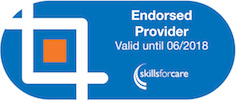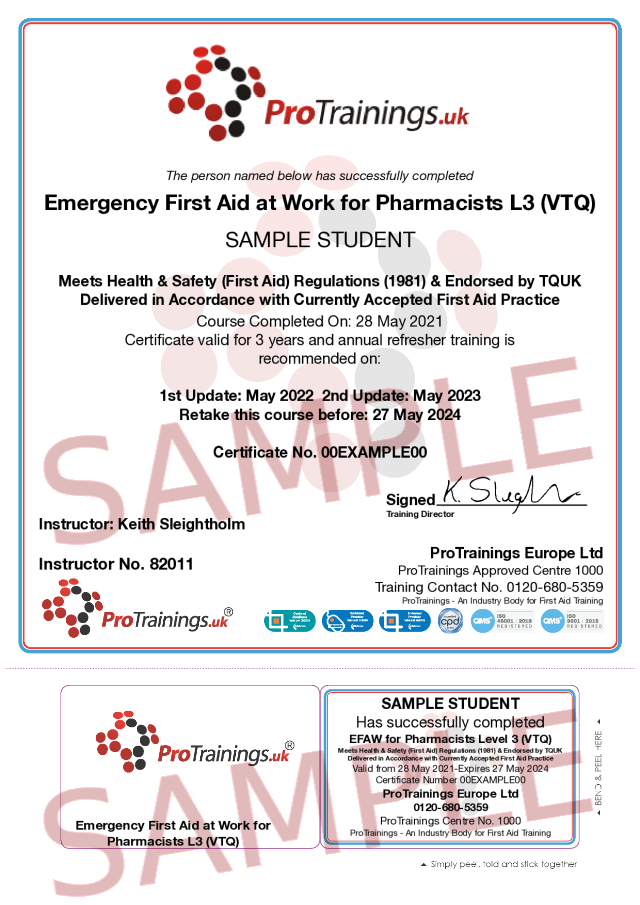EFAW course with additional first aid subjects for Pharmacists


Emergency First Aid at Work for Pharmacists Level 3 (VTQ) is a longer course than the standard EFAW to include the recommended extra subjects for Pharmacists. The course can be taught as a 100% classroom course or taught as a blended course which saves time in the classroom using our video online training but you still receive the same certificate as a class course.
The content of this and all our courses has been independently certified as conforming to universally accepted Continuous Professional Development (CPD) guidelines and come with a Certified CPD Statement as well as a ProTrainings Certificate and for online courses an Evidence Based Learning statement.






